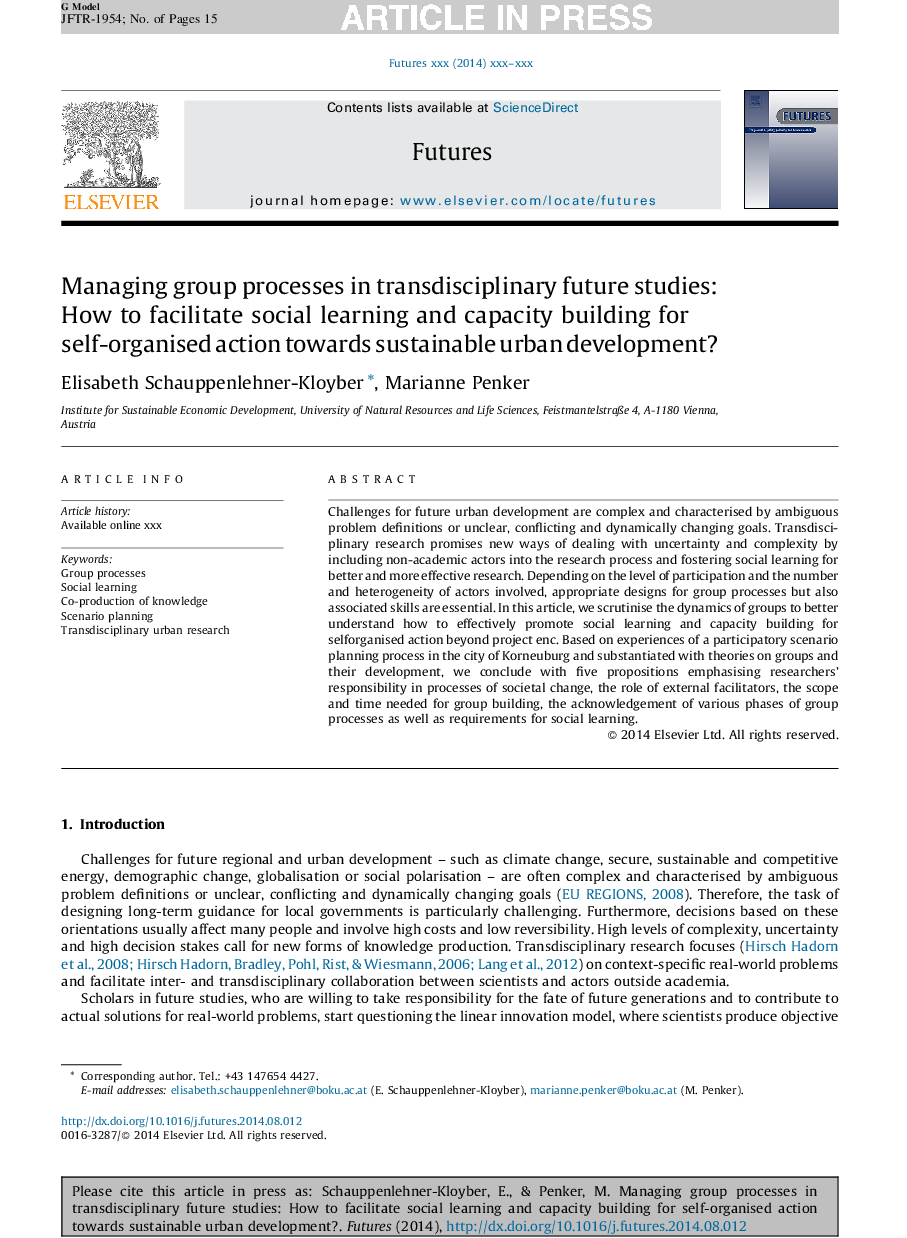| Article ID | Journal | Published Year | Pages | File Type |
|---|---|---|---|---|
| 7424306 | Futures | 2015 | 15 Pages |
Abstract
Challenges for future urban development are complex and characterised by ambiguous problem definitions or unclear, conflicting and dynamically changing goals. Transdisciplinary research promises new ways of dealing with uncertainty and complexity by including non-academic actors into the research process and fostering social learning for better and more effective research. Depending on the level of participation and the number and heterogeneity of actors involved, appropriate designs for group processes but also associated skills are essential. In this article, we scrutinise the dynamics of groups to better understand how to effectively promote social learning and capacity building for selforganised action beyond project enc. Based on experiences of a participatory scenario planning process in the city of Korneuburg and substantiated with theories on groups and their development, we conclude with five propositions emphasising researchers' responsibility in processes of societal change, the role of external facilitators, the scope and time needed for group building, the acknowledgement of various phases of group processes as well as requirements for social learning.
Related Topics
Social Sciences and Humanities
Business, Management and Accounting
Business and International Management
Authors
Elisabeth Schauppenlehner-Kloyber, Marianne Penker,
